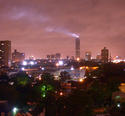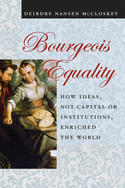When Americans consider a move to another part of the country, they sometimes are forced to make a tough choice: should they go to a city with the best job opportunities, or a less economically vital area that offers a better standard of living, particularly more affordable housing? However, there are still plenty of metropolitan areas in the U.S. where you can get the best of both worlds. read more »
Economics
The Cities Where Your Salary Will Stretch The Furthest 2016
- Login to post comments
Job Creation Under the Next President
Retraining the employed and the unemployed for higher value-added skills is now more important than simply adding to the number of jobs.
Coal and steel magnate Wilbur Ross, a senior policy advisor to the Trump campaign, has just made in the pages of the Wall Street Journal an economic prediction that looks mathematically unattainable. read more »
- Login to post comments
Real Estate Doesn’t Make an Economy
From Southern California to Shanghai and London, inflated real estate prices have evolved into a simulacrum for broader prosperity. In an era of limited income gains, growing inequality, political dysfunction and fading productivity, the conjunction of low interest rates and essentially free money for the rich and well-placed has sparked the construction of often expensive, high-density residential housing. read more »
- Login to post comments
Corporate Mustard Showroom Helps Explain New York’s Retail Rent Crisis
The story of skyrocketing rents has two components: residential and commercial.
My New York neighborhood, the Upper West Side, features fairly stable residential rents, but commercial rents seem to have been soaring. This has caused the familiar angst over the loss of neighborhood businesses to the ubiquitous bank branches and drug stores. read more »
Can California Transition to Next Tech Wave?
The consumer technology boom, largely responsible for a resurgence in California’s economy after the tech wreck of 2001, seems to be coming to an end. The signs are widespread: slowing employment, layoffs from bell-weather social media companies, the almost embarrassing difficulty of finding buyers for Twitter, the absorption of Yahoo by Verizon and the acquisition by Microsoft of LinkedIn. read more »
- Login to post comments
The House Prices are Too Damned High
In recent years, the plight of renters in a stagnant economy has been covered extensively. A book title incorporated the phrase “the rent is too damn high” (by Matthew Iglesias). The “Rent is Too Damn High Party” ran candidates in both city and state of New York elections. However, as bad as rent increases have been, more serious has been the escalation of house prices in the major metropolitan areas of the United States. read more »
- Login to post comments
A Capital Improvement and Revitalization Idea for Detroit
You may have heard that Detroit is in the midst of a modest but enduring revival in and around its downtown. Residents and businesses are returning to the city, filling long-vacant skyscrapers, prompting new commercial development and revitalizing adjacent old neighborhoods. As a former Detroiter I'm excited to see the turnaround. After so many false starts, Detroit's post-bankruptcy rebound seems very real. read more »
- Login to post comments
Today’s Orange County: Not Right Wing—and Kinda Hip
What comes to mind when you think about Orange County? Probably, images of lascivious housewives and blonde surfers. And certainly, at least if you know your political history, crazed right-wing activists, riding around with anti-UN slogans on their bumpers in this county that served as a crucial birthplace of modern movement conservatism in the 1950s. read more »
Diedre McCloskey’s Trickle-Out Economics
Economics, history, English and communications Professor Diedre N. McCloskey, of the University of Illinois, Chicago offers a unique interpretation of economic history that is well summarized in the subtitle of her book, “Bourgeois Equality: How Ideas, Not Capital or Institutions Enriched the World.”
This is a magisterial volume, which Matthew Ridley praised in his Times of London review, saying “It is so rich in vocabulary, allusion and fact as to be a contender for the great book of our age.” That is not an exaggeration. read more »
- Login to post comments
America's Next Great Metropolis Is Taking Shape In Texas
If you drive south from Dallas, or west from Houston, a subtle shift takes place. The monotonous, flat prairie that dominates much of Texas gives way to a landscape that rises and ebbs. read more »
- Login to post comments





















